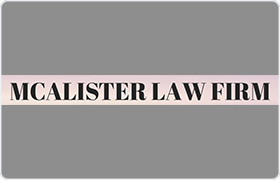Carriere DUI-DWI Lawyer, Mississippi, page 3
Sponsored Law Firm
-
 x
x

Click For More Info:
-
McAlister Law Firm, LLC
419 Security Square Gulfport, MS 39507» view mapCriminal Defense Law Your Gulf Coast Attorney
An Attorney with Nineteen years of court room experience. Licensed in the States of Mississippi and Alabama.
228-265-5190
Not enough matches for Carriere DUI-DWI lawyer.
Below are all Carriere Criminal lawyers.
Roy Bedford Strickland
Federal Appellate Practice, Government, Family Law, Criminal
Status: In Good Standing Licensed: 64 Years
Robert F Weaver
Criminal, Bankruptcy & Debt, Personal Injury, Family Law
Status: Inactive Licensed: 34 Years
 Carolyn McAlister Gulfport, MS
Carolyn McAlister Gulfport, MS
